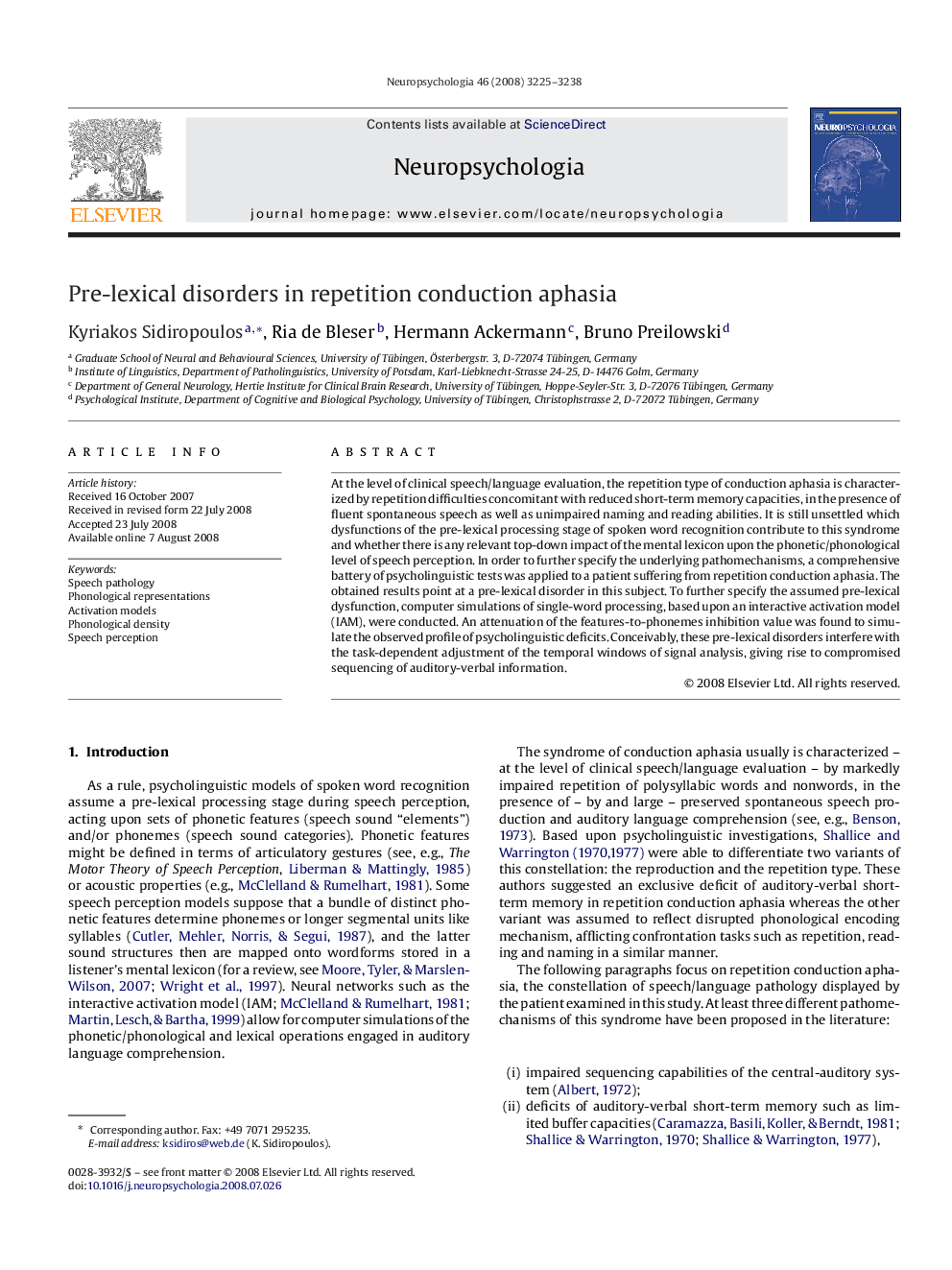| Article ID | Journal | Published Year | Pages | File Type |
|---|---|---|---|---|
| 945268 | Neuropsychologia | 2008 | 14 Pages |
At the level of clinical speech/language evaluation, the repetition type of conduction aphasia is characterized by repetition difficulties concomitant with reduced short-term memory capacities, in the presence of fluent spontaneous speech as well as unimpaired naming and reading abilities. It is still unsettled which dysfunctions of the pre-lexical processing stage of spoken word recognition contribute to this syndrome and whether there is any relevant top-down impact of the mental lexicon upon the phonetic/phonological level of speech perception. In order to further specify the underlying pathomechanisms, a comprehensive battery of psycholinguistic tests was applied to a patient suffering from repetition conduction aphasia. The obtained results point at a pre-lexical disorder in this subject. To further specify the assumed pre-lexical dysfunction, computer simulations of single-word processing, based upon an interactive activation model (IAM), were conducted. An attenuation of the features-to-phonemes inhibition value was found to simulate the observed profile of psycholinguistic deficits. Conceivably, these pre-lexical disorders interfere with the task-dependent adjustment of the temporal windows of signal analysis, giving rise to compromised sequencing of auditory-verbal information.
